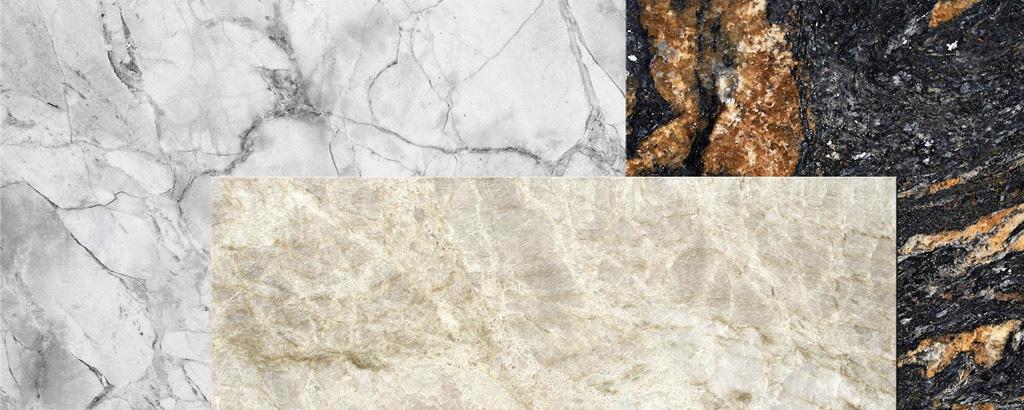 Quartzite
Quartzite
In relation to the article "When marble is not marble and when granite is not granite", let’s look at some types of quartzite that are commercially classified as marble or granite, but are indeed very different.
What is quartzite? Origin and physical properties …
Quartzite is a metamorphic rock that in far past geological ages, had been exposed to strong pressure and high temperatures; under these exceptional circumstances it completely changed its chemical and physical properties so that it is no longer possible to recognize the original state.
As the name suggests, quartzite mainly consists of quartz and was created from deposits of quartz sand that were destroyed and transformed metamorphically; this is clearly visible on the fine-grained surface. If there are minerals, they determine the colour shades.
Quartzites are usually colour neutral, their shades lie between white and grey, but in presence of different minerals, they often have other colours: from green to pink or red, from purple to blue. If there are quartz nodules or other inclusions, the surface structure is usually not homogenous, but still fascinating.
Just a curious fact: during the Stone Age, quartzite was used to produce arrow heads and scrapers instead of flint stones.
Quartz vs. quartzite?
These two materials are often confused with each other and cheap stores commonly add to this confusion. Quartz and quartzite may be similar, but they are indeed completely different: quartz is a man-made resin, whereas quartzite is a metamorphic natural stone, that has been formed over thousands of years.
If you want to learn more about it, then read our article "Quartz vs. Quartzite".
Brazilian quartzite
There are many different types of quartzite: the Brazilian quartzite comes surely first, but the Indian, African, and Italian quartzites are also very colourful and can be stylishly staged. Among the various types of quartzite, you’ll find many with more neutral colours that are not as spectacular but nevertheless, offer an unexpectedly modern charm.
Let’s take a closer look at a few quartzites which are classified in our catalogue and in our warehouse online, due to their physical similarities, as ‘granite‘:
-
Quartzite Taj Mahal
When talking about bright quartzites, let’s not forget about the magnificent Taj Mahal. Do not confuse the name with the famous Indian mausoleum of the city of Agra: Taj Mahal is a quartzite from Brazil. This white quartzite reminds us a bit of the marble Calacatta but is much more resistant and often used for kitchen countertops, as it cannot be as easily scratched as a marble surface. Thanks to their particular structure, quartzites are very beautiful when polished or polished book matched. This means, when we number the slabs of a block, slab 1 and slab 2 are polished in such way, that one is exactly the mirror reflection of the other. This process is successively repeated, so that a continuous pattern will be created slab after slab.
 Quartzite Taj Mahal – Take a look at our CATALOGUE or check the availability in our MARBLE AND GRANTE ONLINE WAREHOUSE
Quartzite Taj Mahal – Take a look at our CATALOGUE or check the availability in our MARBLE AND GRANTE ONLINE WAREHOUSE
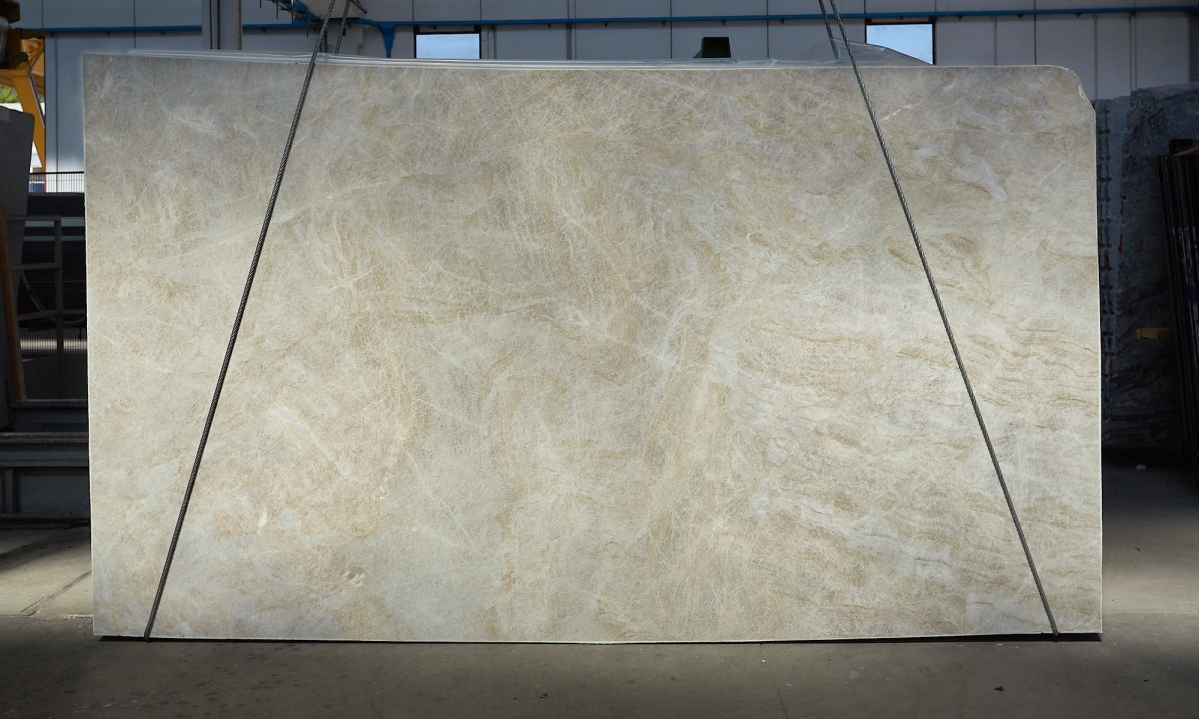 Quartzite slabs Taj Mahal – Take a look at our CATALOGUE or check the availability in our MARBLE AND GRANTE ONLINE WAREHOUSE
Quartzite slabs Taj Mahal – Take a look at our CATALOGUE or check the availability in our MARBLE AND GRANTE ONLINE WAREHOUSE
-
Quartzite Super White
Super White is one of those materials that cannot be classified immediately as marble or granite. You would probably call it marble. Super White comes from Brazil and has the wonderful luminosity of marbles like Bianco Carrara or Palissandro, while its texture reminds us vaguely of the arabesque pattern of breccia. At first glance, you think you’re standing in front of the arctic sea during a thaw, while grey-white ice sheets are breaking: you wouldn’t be surprised to see a pair of polar bears floating dangerously on an ice floe.
What kind of material is it then, since it is transparent as marble but resistant as granite? The answer is: neither marble nor granite; even if you’ll find this material in our warehouse under the category granite, Super White is a natural and very resistant quartzite, that was made from sandstone, created from sand.
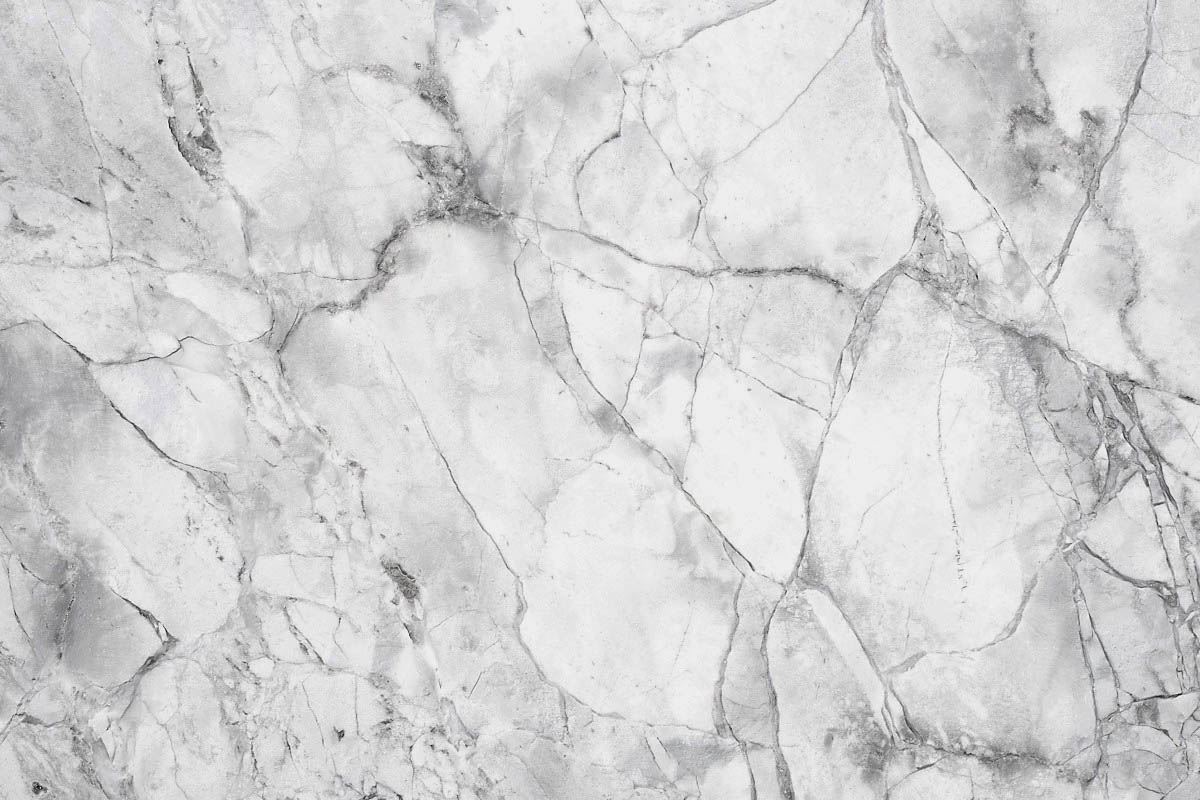 Quartzite Super White - Take a look at our CATALOGUE or check the availability in our MARBLE AND GRANITE ONLINE WAREHOUSE
Quartzite Super White - Take a look at our CATALOGUE or check the availability in our MARBLE AND GRANITE ONLINE WAREHOUSE
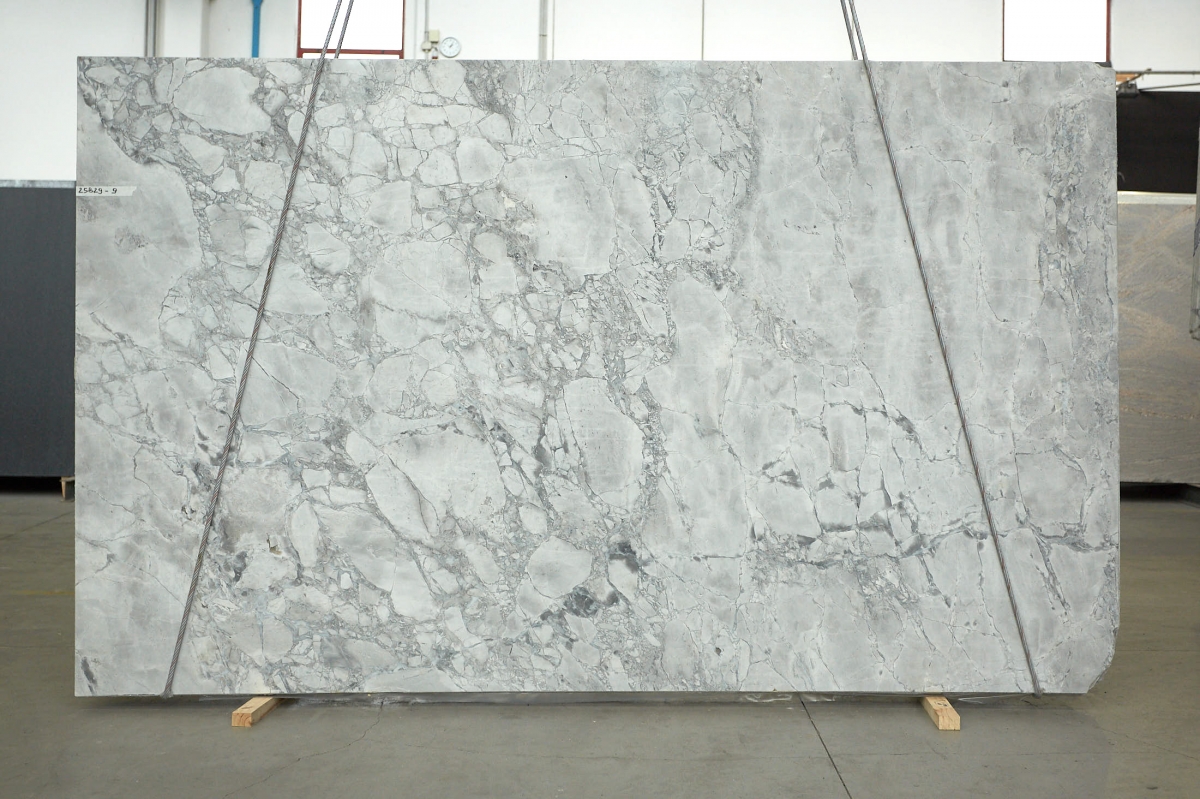 Quartzite slabs Super White - Take a look at our CATALOGUE or check the availability in our MARBLE AND GRANITE ONLINE WAREHOUSE
Quartzite slabs Super White - Take a look at our CATALOGUE or check the availability in our MARBLE AND GRANITE ONLINE WAREHOUSE
-
Magma Gold
Magma Gold is one of those splendid quartzites that you cannot describe with beautiful words or well-staged photos: nothing would do justice to this wonderful Brazilian quartzite with its multifaceted black background and clearly visible spectacular texture in various shades of gold. The fine grained and brown-gold wave pattern makes this material unique.
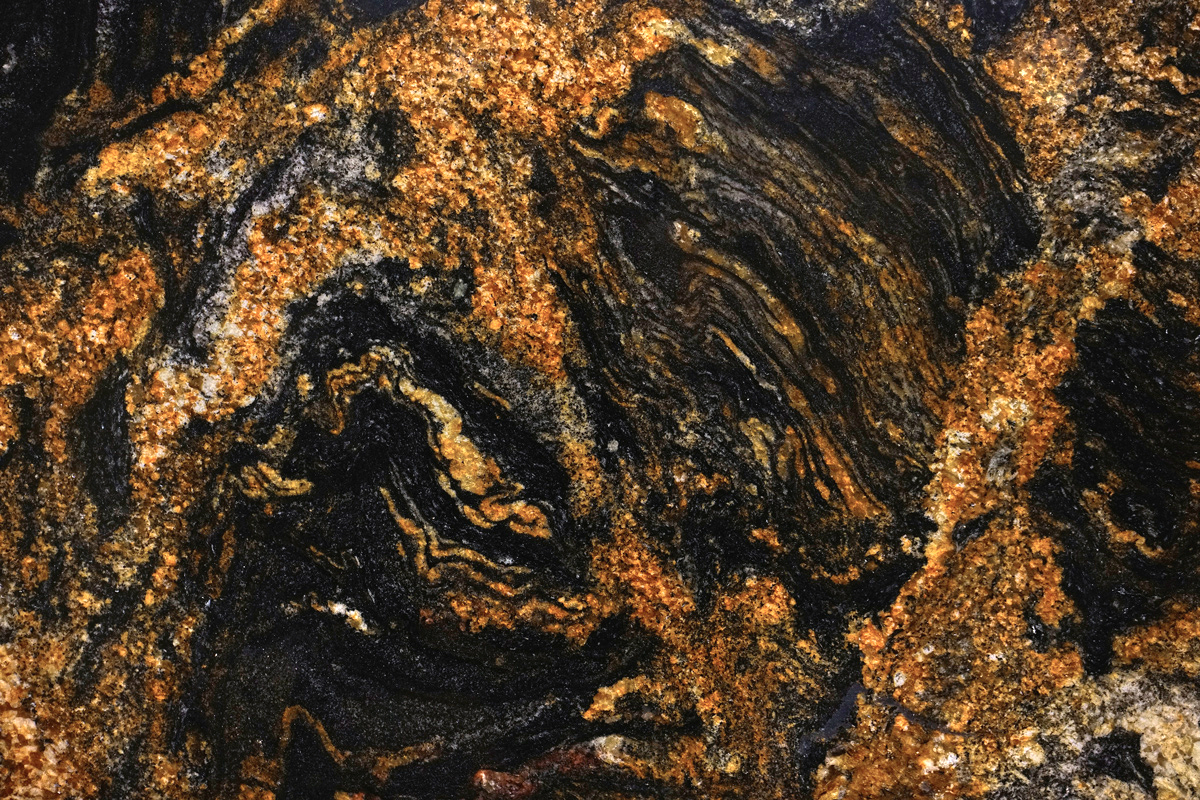 Quartzite Magma Gold- Take a look at our CATALOGUE or check the availability in our MARBLE AND GRANITE ONLINE WAREHOUSE
Quartzite Magma Gold- Take a look at our CATALOGUE or check the availability in our MARBLE AND GRANITE ONLINE WAREHOUSE
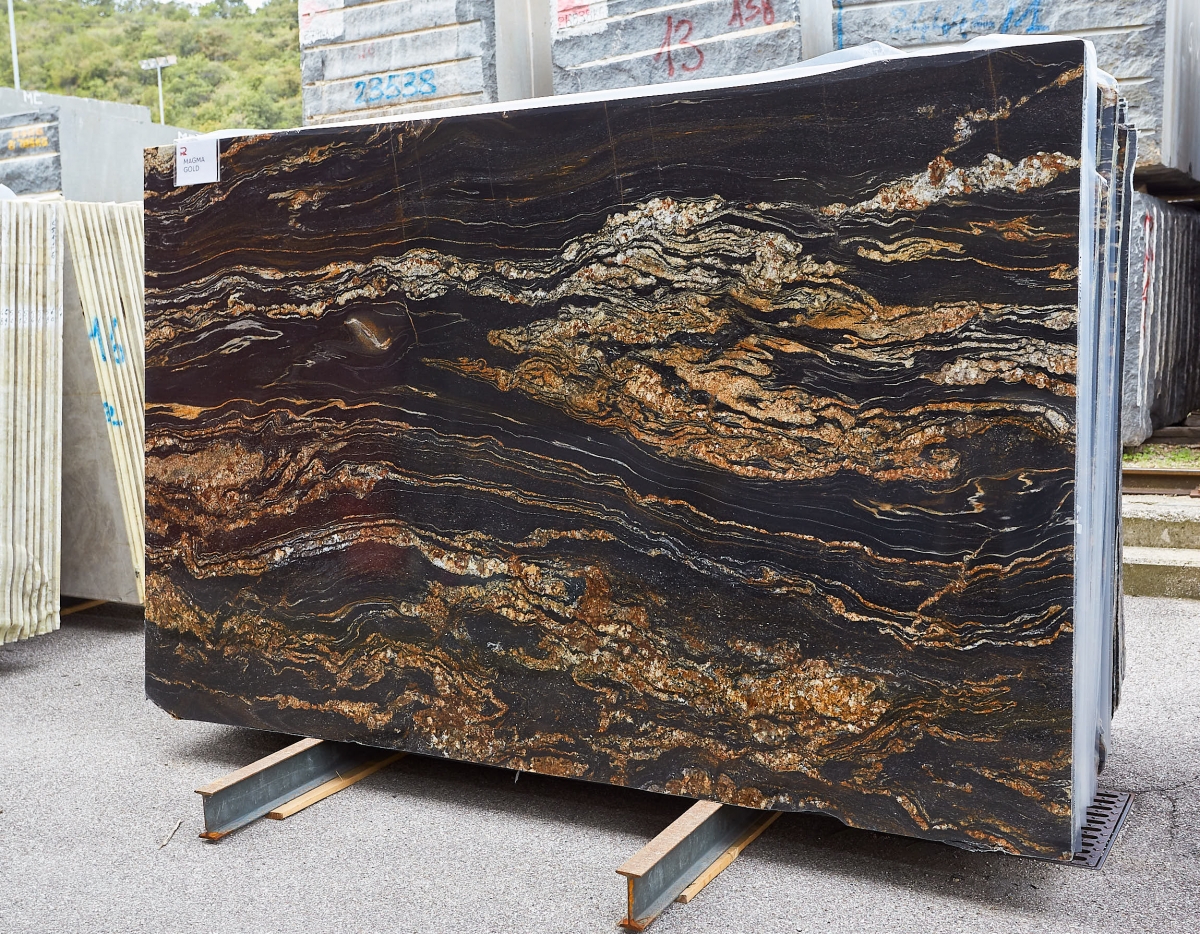
Quartzite Magma Gold slabs- Take a look at our CATALOGUE or check the availability in our MARBLE AND GRANITE ONLINE WAREHOUSE
-
Quartzite Portoro
This black quartzite from Africa owes its name to the ancient marble from the Gulf of Poets in Liguria. Grains of various thicknesses, in shades from white to gold, run through the black and uneven background.
 Quarzite Portoro - Scoprila nel CATALOGO o guarda la disponibilità nel MAGAZZINO ONLINE
Quarzite Portoro - Scoprila nel CATALOGO o guarda la disponibilità nel MAGAZZINO ONLINE
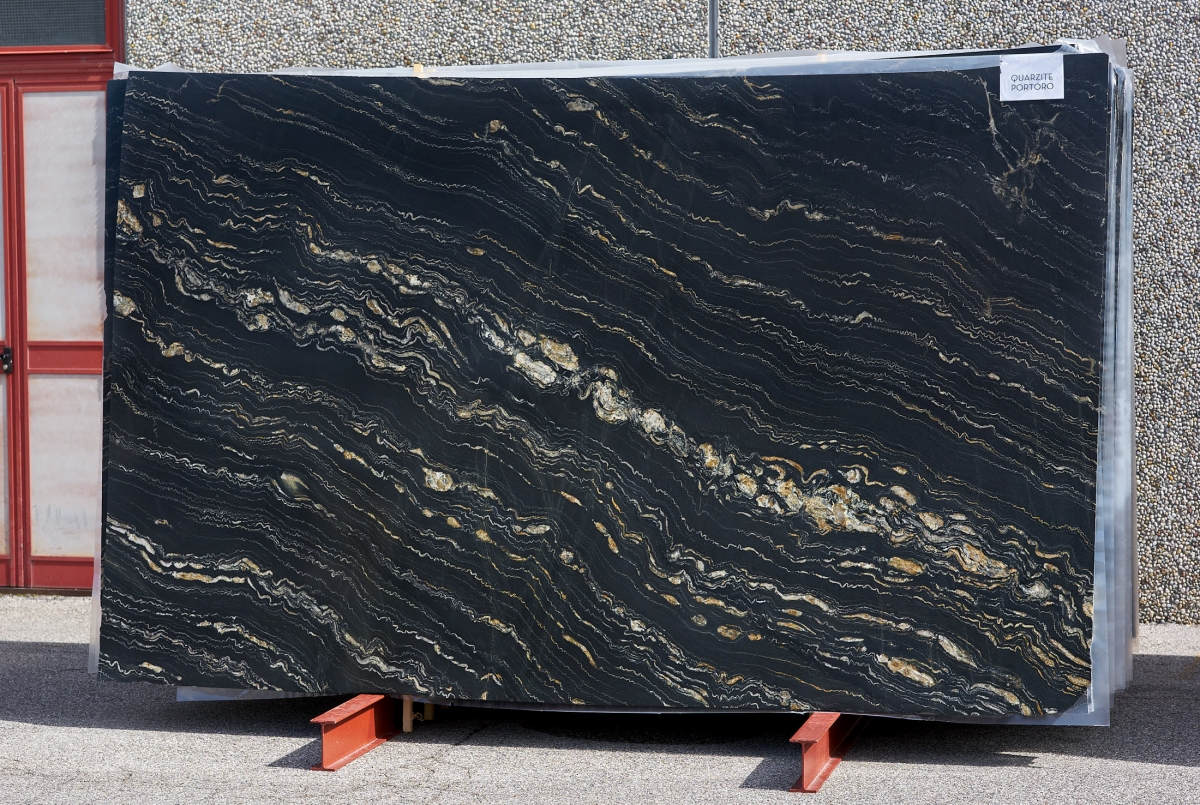
Quartzite Portoro slabs - Take a look at our CATALOGUE or check the availability in our MARBLE AND GRANITE ONLINE WAREHOUSE
-
Quartzite White Pearl
As the name suggests, the Brazilian quartzite White Pearl has several undulating grains in different shades of grey on a pearlescent background. This material fits perfectly in your kitchen, bathroom or living room, if you wish to create a bright atmosphere.
 Quartzite White Pearl - Take a look at our CATALOGUE or check the availability in our ONLINE WAREHOUSE
Quartzite White Pearl - Take a look at our CATALOGUE or check the availability in our ONLINE WAREHOUSE
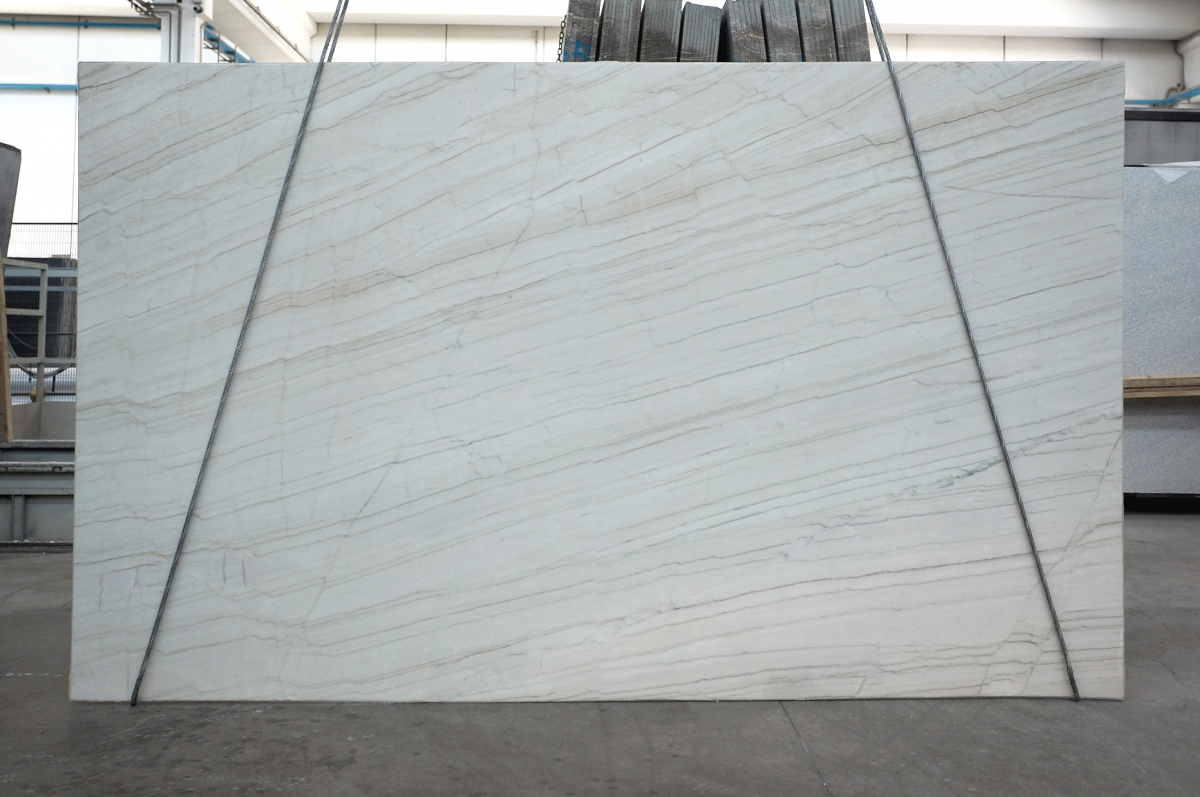 Quartzite White Pearl slabs - Take a look at our CATALOGUE or check the availability in our ONLINE WAREHOUSE
Quartzite White Pearl slabs - Take a look at our CATALOGUE or check the availability in our ONLINE WAREHOUSE
-
Mont Blanc
This quartzite reminds us of the luminosity and profundity of great Italian marbles such as Calacatta. Its background colour is light and tends to warmer tones in slightly yellow and pink, which are criss-crossed by strong grey-green veins.
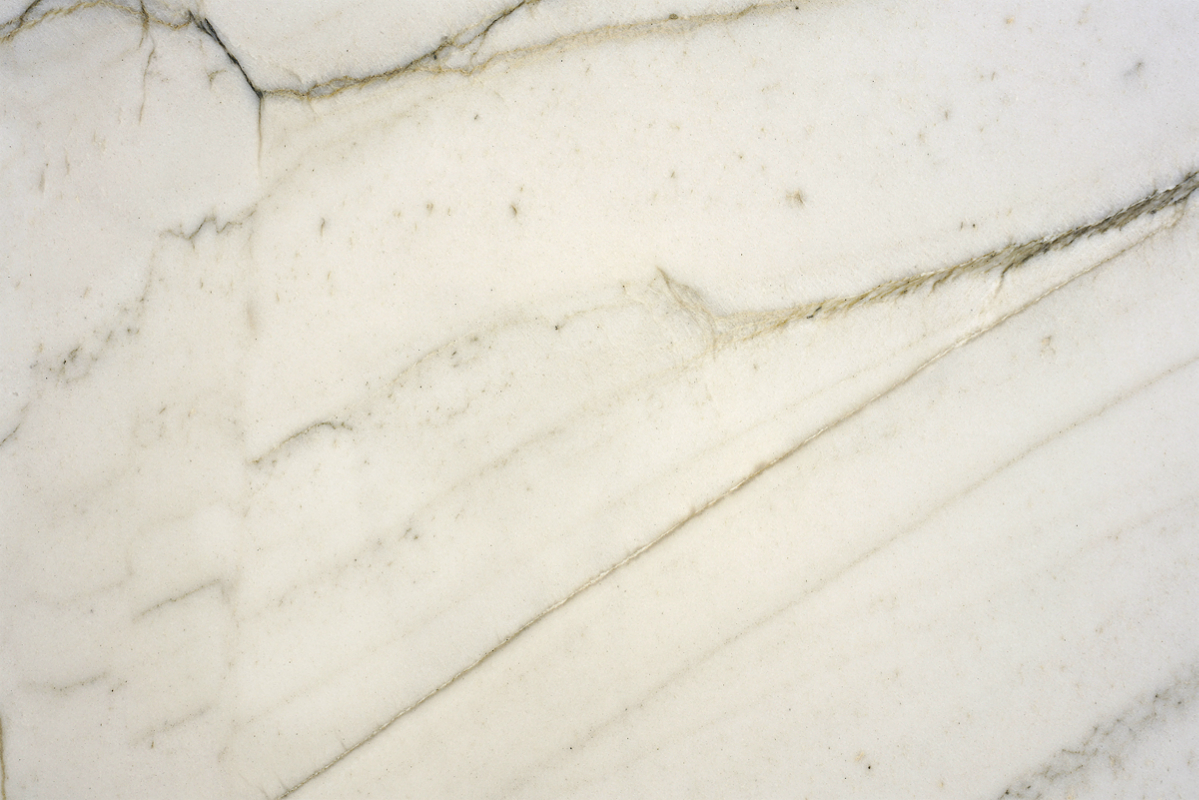 Quartzite Mont Blanc (or Calacatta Brazil) - Take a look at our CATALOGUE
Quartzite Mont Blanc (or Calacatta Brazil) - Take a look at our CATALOGUE
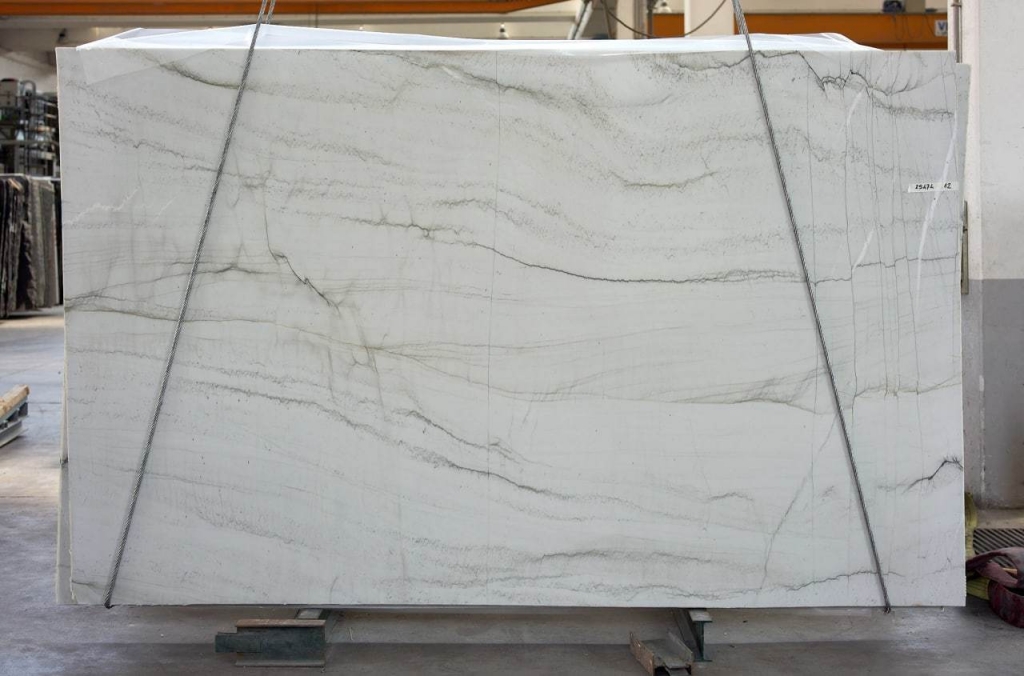 Quartzite Mont Blanc (or Calacatta Brazil) - Take a look at our CATALOGUE
Quartzite Mont Blanc (or Calacatta Brazil) - Take a look at our CATALOGUE
-
Quartzite Cristallo
The background colour of this quartzite varies between light grey and cloudy-transparent ochre shades, which are diagonally crossed by thick and lighter veins, while the horizontally running red-brown veins are clearly more visible. This particular transparency is fascinating when backlighted and creates wonderful effects.
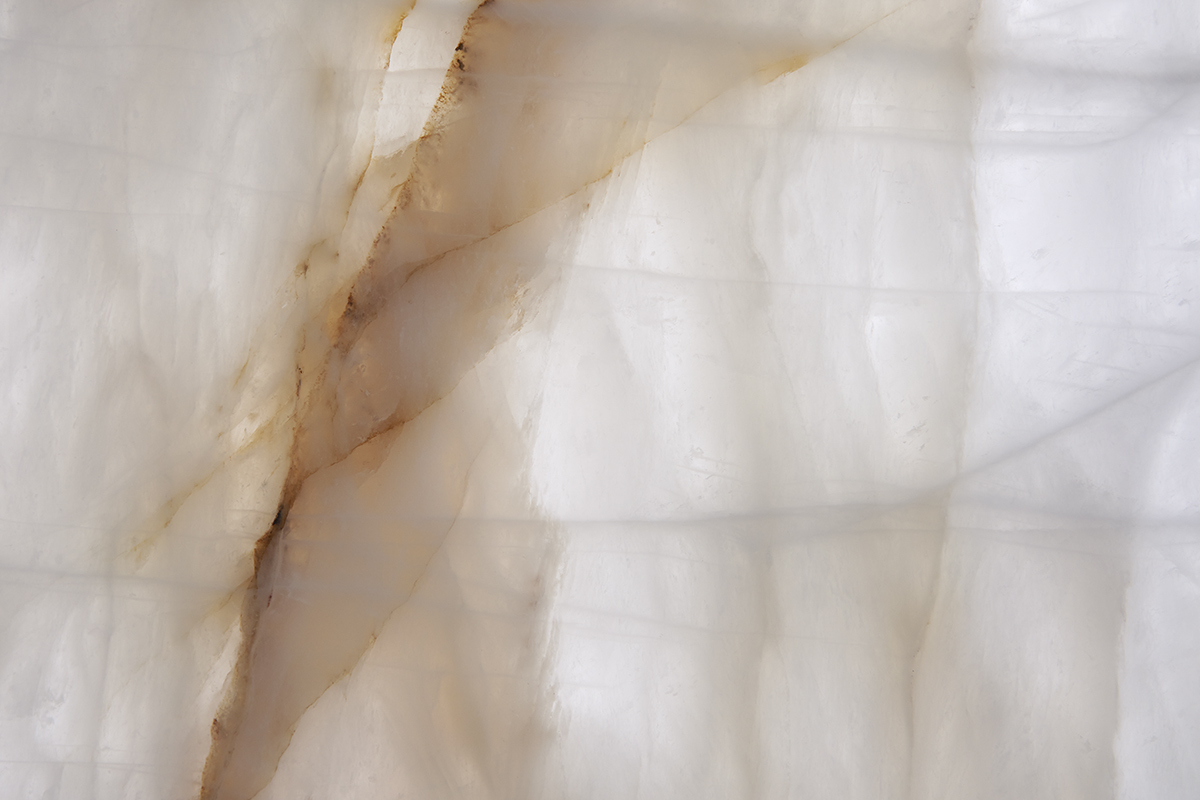 Quartzite Cristallo slabs - Take a look at our CATALOGUE or check the availability in our MARBLE AND GRANITE ONLINE WAREHOUSE
Quartzite Cristallo slabs - Take a look at our CATALOGUE or check the availability in our MARBLE AND GRANITE ONLINE WAREHOUSE
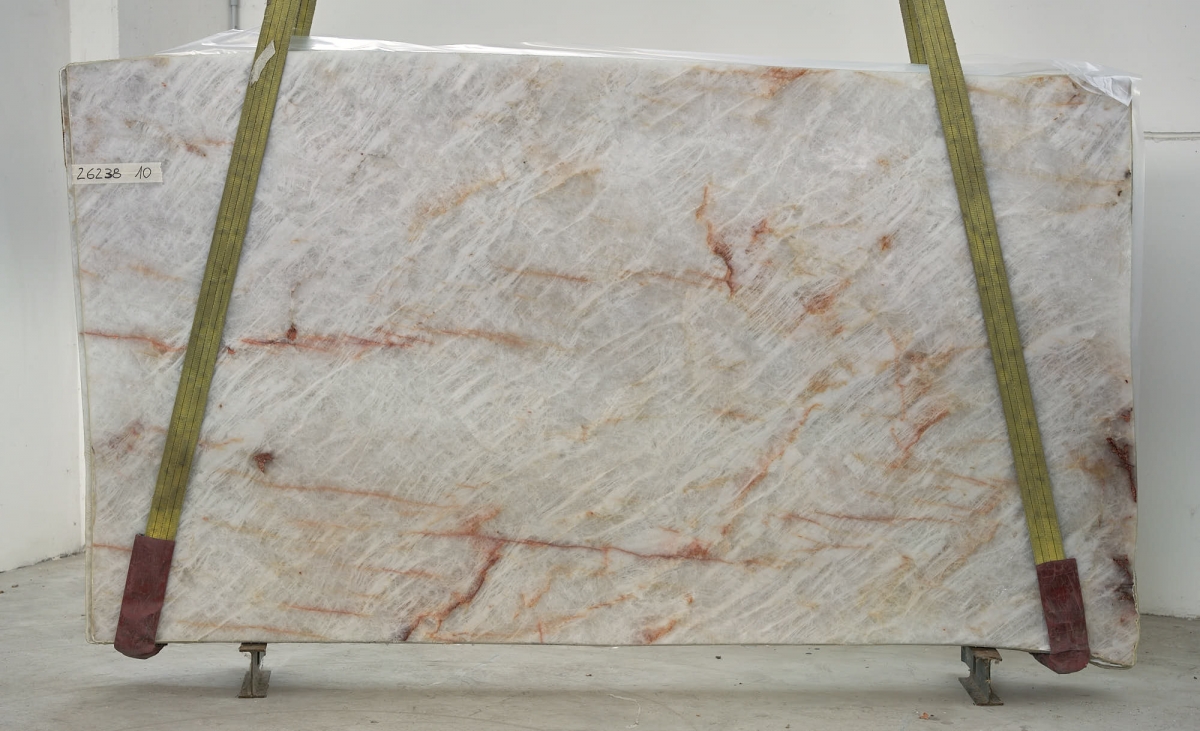
Quartzite slabs Cristallo - Take a look at our CATALOGUE or check the availability in our MARBLE AND GRANITE ONLINE WAREHOUSE
-
Quartzite Donatello
This quartzite has a completely different texture, a cloudy background with different shades of grey, including London smoky grey, that is interspersed by lighter dots that sometimes clearly outstand, and by centimetre-sized quartz nodules. All in all, this material impresses with timeless elegance.
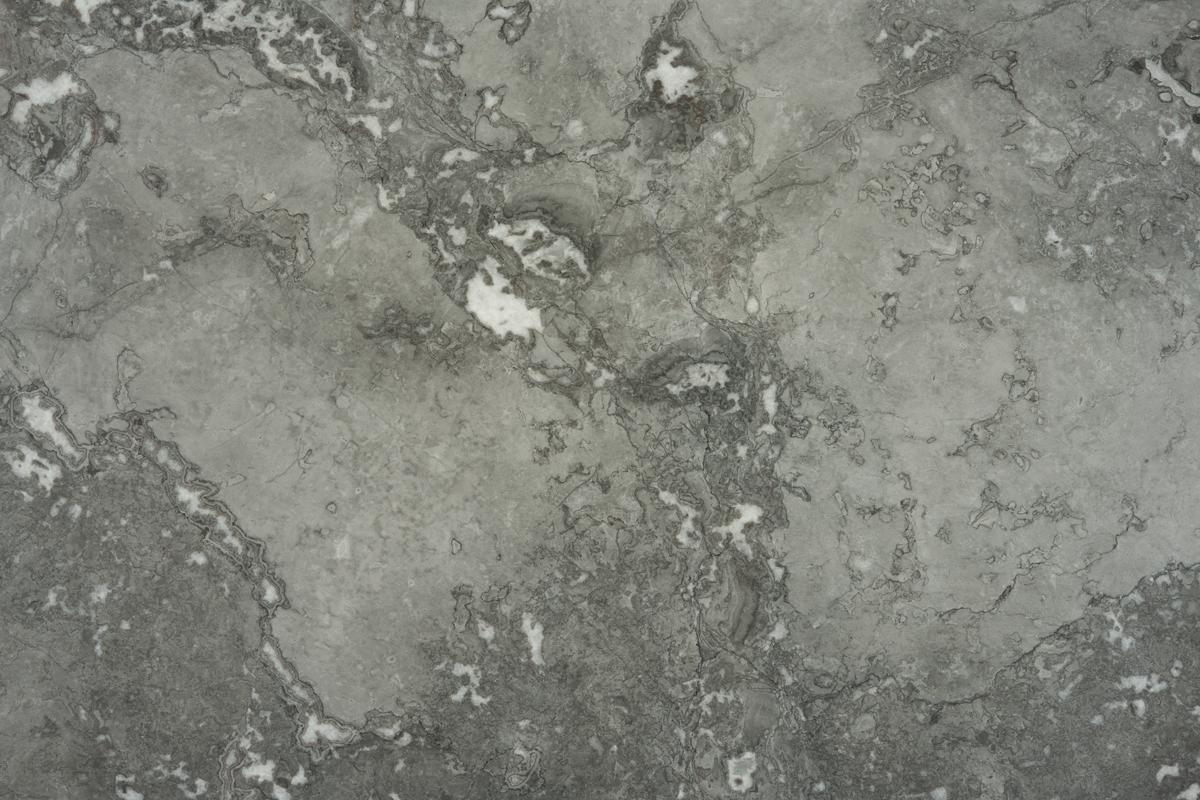 Quartzite Donatello slabs- Take a look at our CATALOGUE or check the availability in our MARBLE AND GRANITE NLINE WAREHOUSE
Quartzite Donatello slabs- Take a look at our CATALOGUE or check the availability in our MARBLE AND GRANITE NLINE WAREHOUSE
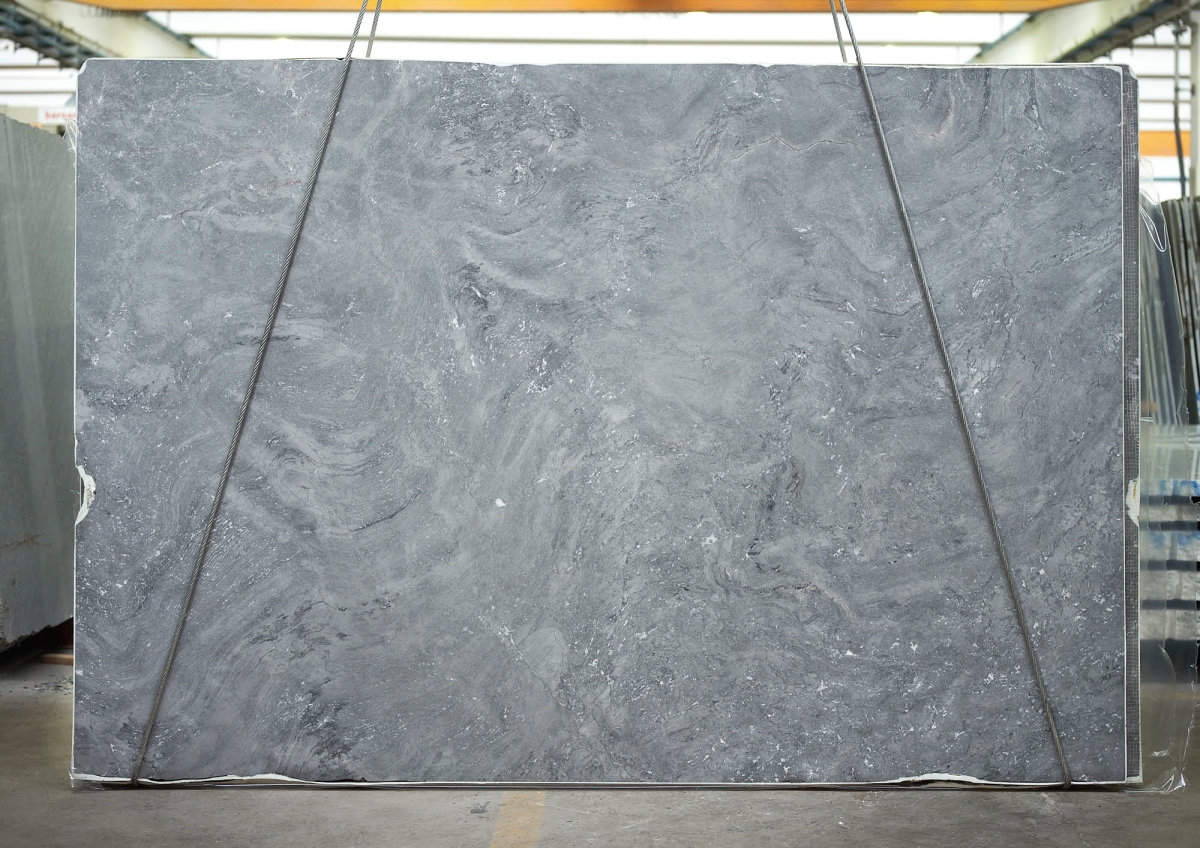
Quartzite Donatello slabs- Take a look at our CATALOGUE or check the availability in our MARBLE AND GRANITE NLINE WAREHOUSE
-
Quartzite Fusion Wow Red
Unlike the previous quartzites, Fusion Wow Red is an explosion of mostly reddish and dark grey shades which often tend to blue; next to each other, the different colours form brisk waves and sometimes, they shine so brightly that we are reminded of the Carnival of Rio. You might also imagine a cooling lava flow with bright coloured sediments: a quartzite with a great scenic effect!
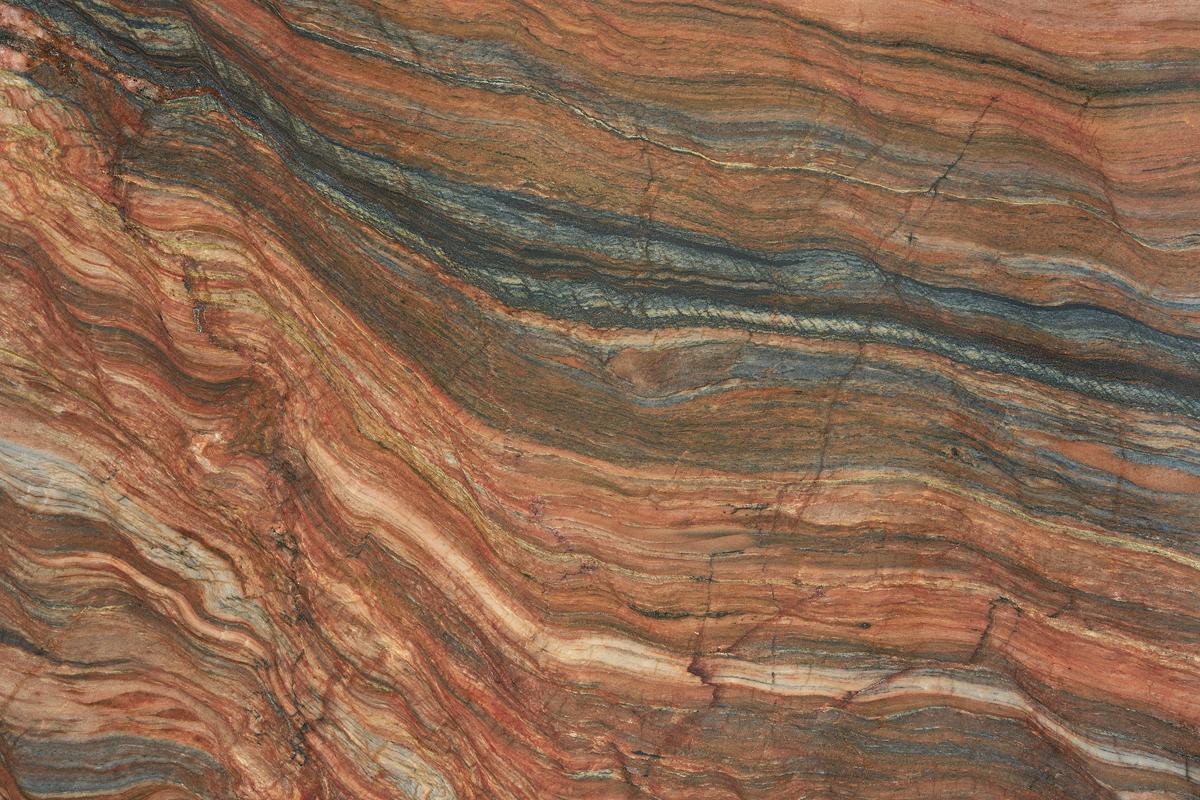 Quartzite Fusion Wow Red slabs- Take a look at our CATALOGUE or check the availability in our GRANITE AND MARBLE ONLINE WAREHOUSE
Quartzite Fusion Wow Red slabs- Take a look at our CATALOGUE or check the availability in our GRANITE AND MARBLE ONLINE WAREHOUSE
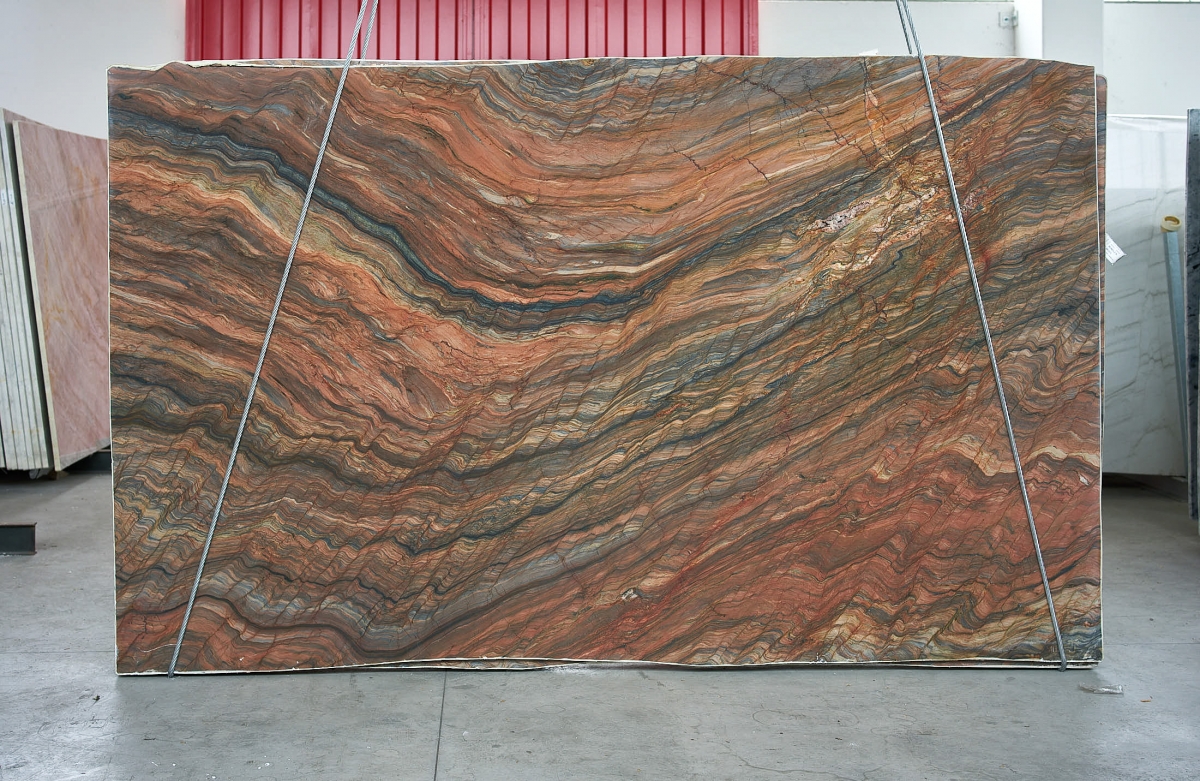 Quartzite slabs Fusion Wow Red - Take a look at our CATALOGUE or check the availability in our GRANITE AND MARBLE ONLINE WAREHOUSE
Quartzite slabs Fusion Wow Red - Take a look at our CATALOGUE or check the availability in our GRANITE AND MARBLE ONLINE WAREHOUSE
-
Quartzite Lumix Cristallo
Lumix Cristallo is a quartzite with an especially light background made of alabaster and spectacular effects are created when it is backlighted. A few yellow and light green veins sometimes turn into dark grey. Occasionally, there are dots of the same colour shades with a diameter that varies from one millimetre to 2 cm.
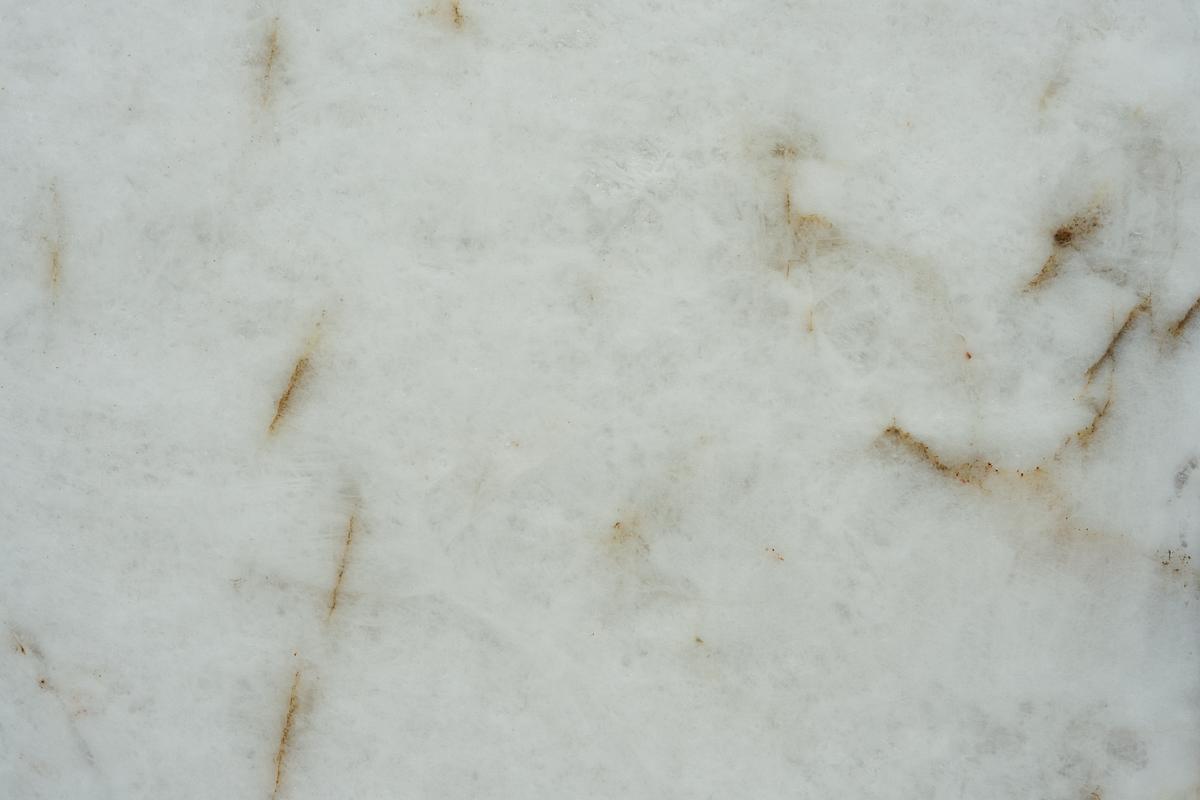 Quartzite Lumix Cristallo slabs - Take a look at our CATALOGUE or check the availability in our GRANITE AND MARBLE ONLINE WREHOUSE
Quartzite Lumix Cristallo slabs - Take a look at our CATALOGUE or check the availability in our GRANITE AND MARBLE ONLINE WREHOUSE
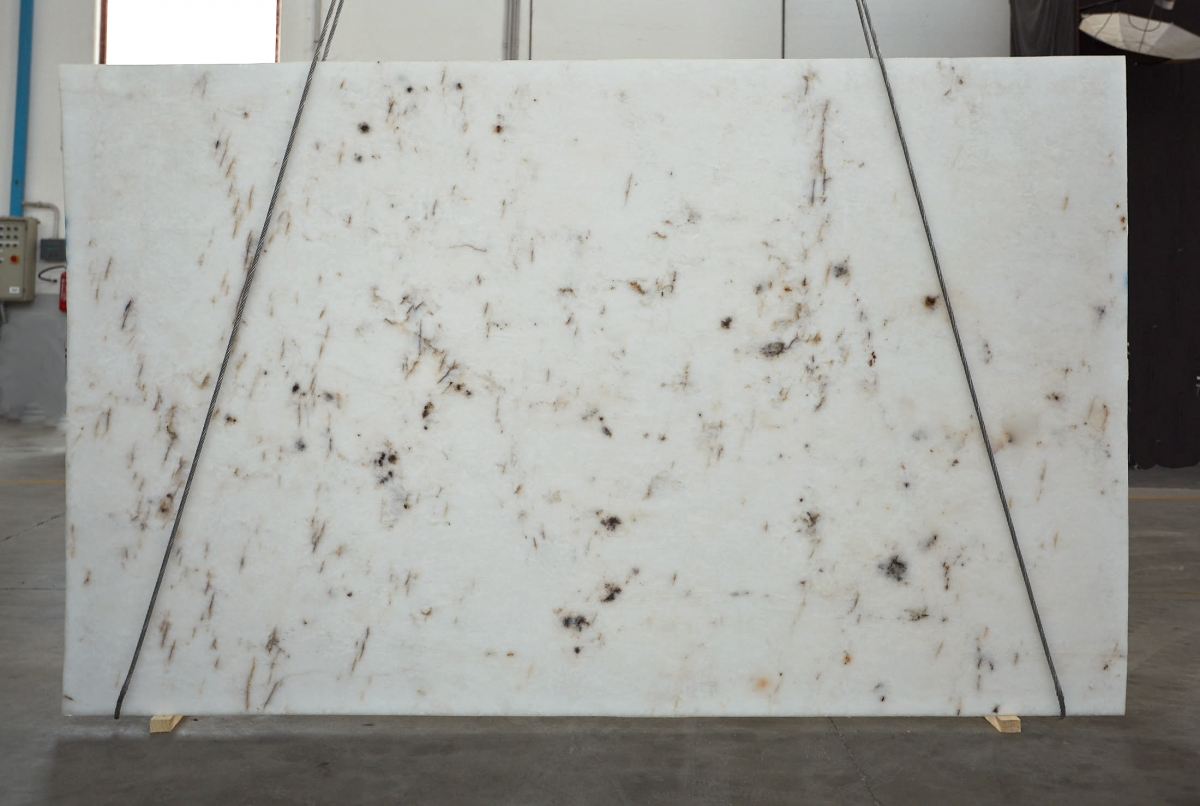 Quartzite slabs Lumix Cristallo - Take a look at our CATALOGUE or check the availability in our GRANITE AND MARBLE ONLINE WREHOUSE
Quartzite slabs Lumix Cristallo - Take a look at our CATALOGUE or check the availability in our GRANITE AND MARBLE ONLINE WREHOUSE
-
Quartzite Macaubas Giotto
Let’s talk about the big family of Macaubas quartzite, although we will only mention the two most representative. First of all, Macaubas Giotto, whose name reminds us of famous art works. Its light background has sometimes darker shades or a pink hue, but they are always delicate. Dark and rather pronounced veins cross mostly diagonally the background, from time to time there are also horizontal stripes and veins.
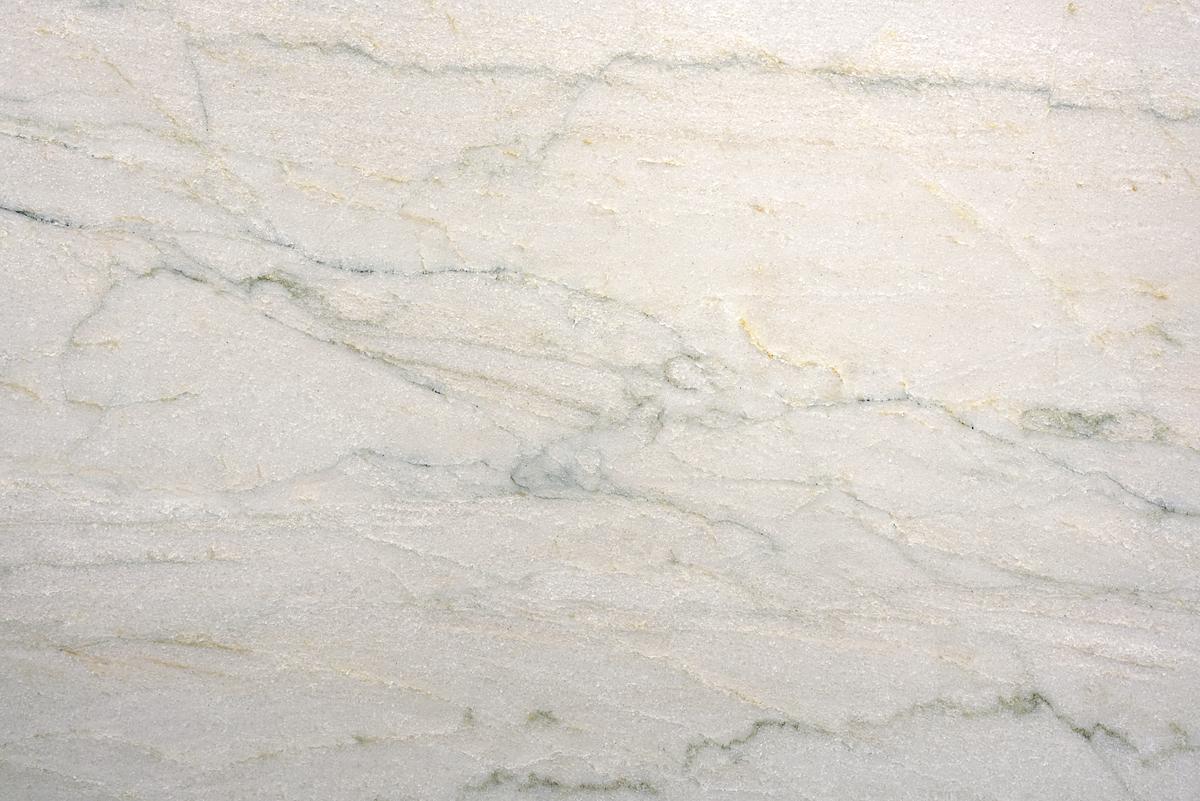 Quarzite Macaubas Giotto - Take a look at our CATALOGUE or check the availability in our GRANITE AND MARBLE ONLINE WREHOUSE
Quarzite Macaubas Giotto - Take a look at our CATALOGUE or check the availability in our GRANITE AND MARBLE ONLINE WREHOUSE
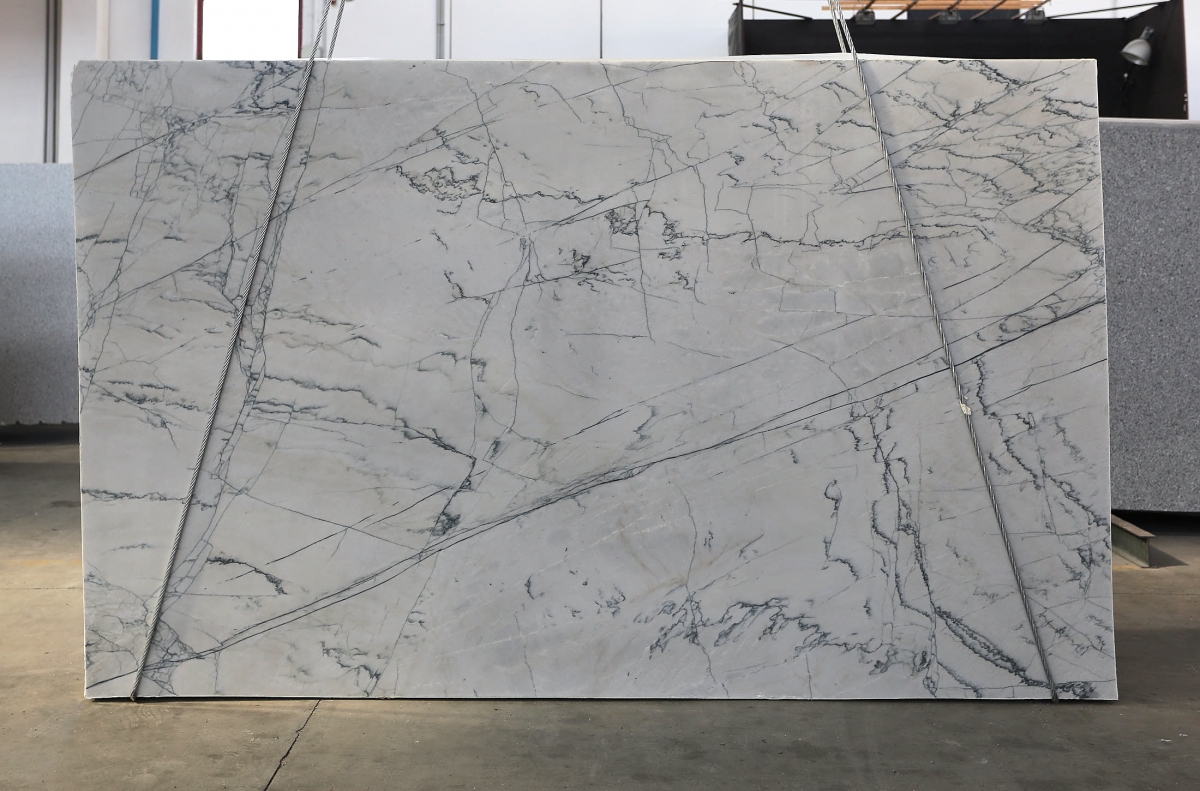 Quartzite slabs Macaubas Giotto - Take a look at our CATALOGUE or check the availability in our GRANITE ONLINE WAREHOUSE
Quartzite slabs Macaubas Giotto - Take a look at our CATALOGUE or check the availability in our GRANITE ONLINE WAREHOUSE
-
Quartzite Macaubas White
Macaubas White shows the same shades as Macaubas Giotto, but when its surface is crosscut, the veins all run horizontally, forming small waves. From above, it looks like a buttery sea, moved by light but dense waves. When vein cut, the surface is cloudy. Both Macaubas quartzites are suitable for indoor use, as kitchen countertop, vanity top, tabletop or furnishing. The surfaces with less lively veins are preferably used for flooring or cladding to create an especially bright atmosphere.
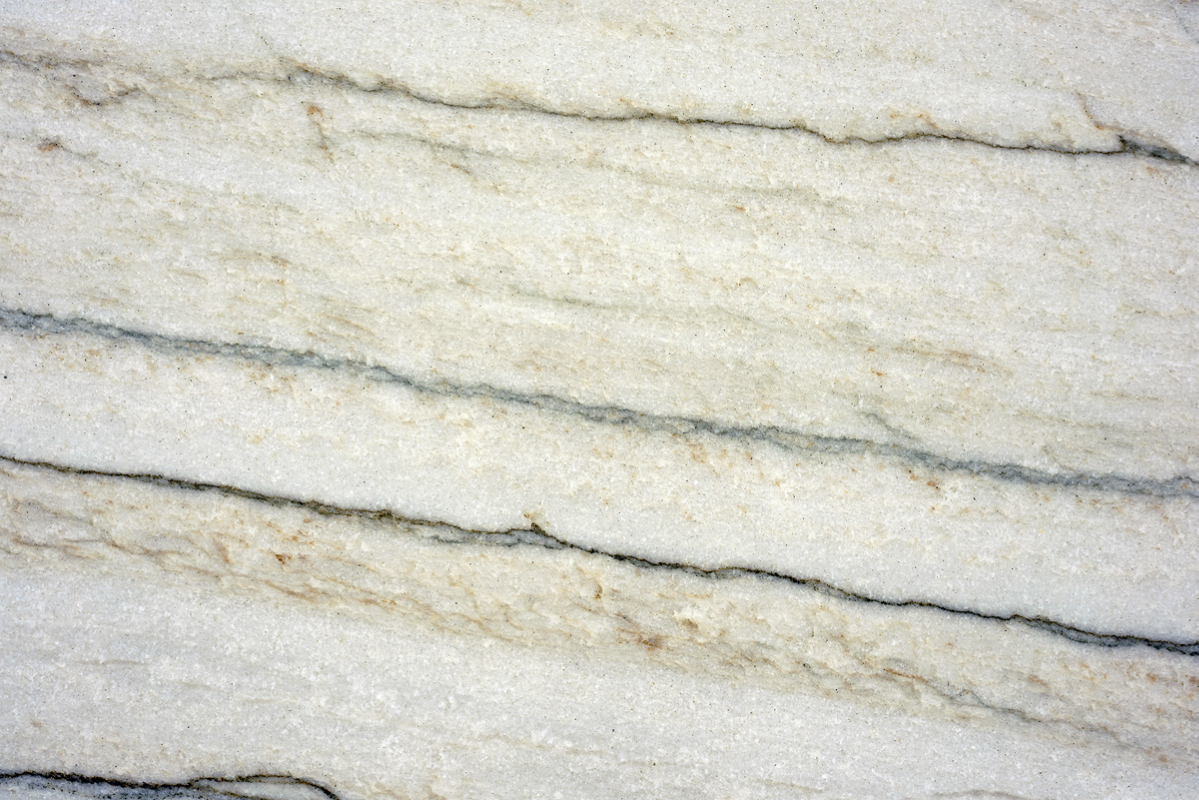 Quartzite Macaubas White "cross cut" slabs - Take a look at our CATALOGUE or check the availability in our MARBLE AND GRANITE ONLINE WAREHOUSE
Quartzite Macaubas White "cross cut" slabs - Take a look at our CATALOGUE or check the availability in our MARBLE AND GRANITE ONLINE WAREHOUSE
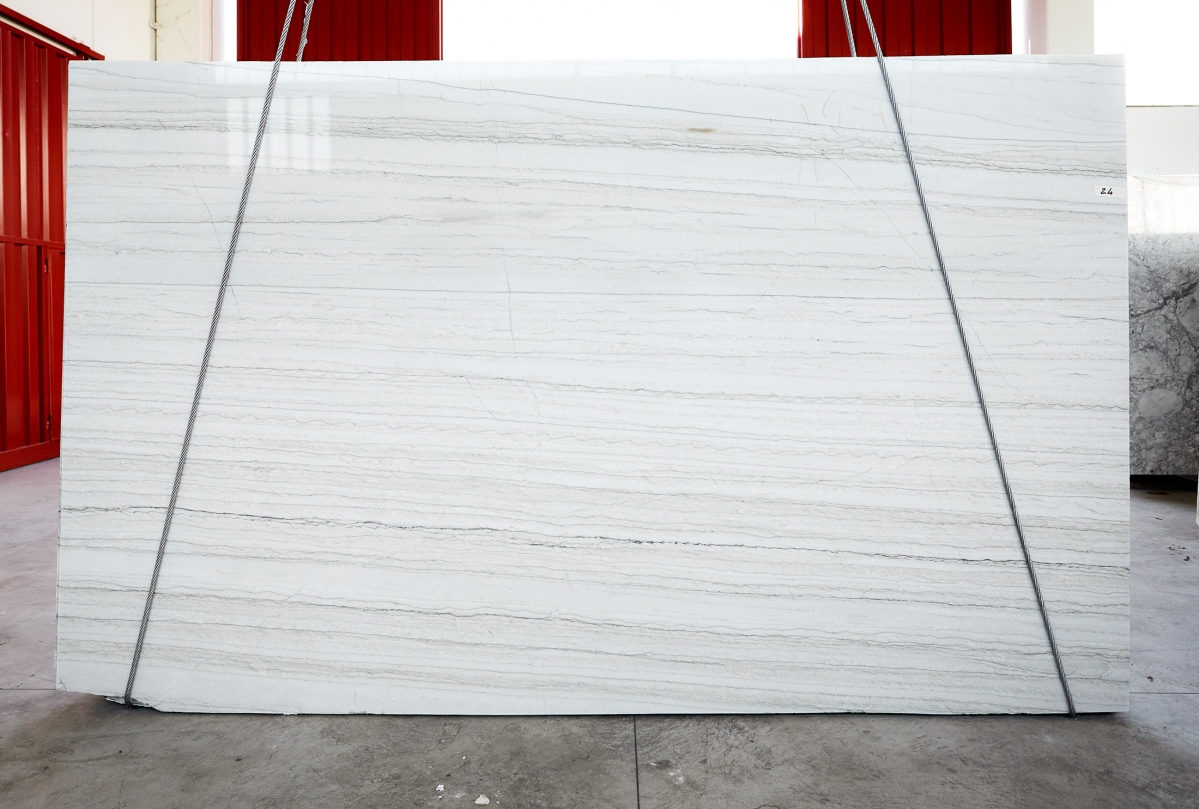
Quartzite Macaubas White "cross cut" slab - Take a look at our CATALOGUE or check the availability in our MARBLE AND GRANITE ONLINE WAREHOUSE
Besides the above mentioned quartzites, there are many other Brazilian quartzites in nature, for instance Quartzite Red (Quarzite Rossa) with its rather homogeneous amaranth red colour. Stripes and veins in warm colours are running on the background and enliven the surface. This quartzite is used both outdoors and indoors, as floor covering or cladding and wherever your imagination and technology will allow it.
Application of quartzites with homogenous structure
Most of the quartzites available on the market, have common properties. Particularly evident is their high strength, that leads to considerable hardness and to long-term resistance against weathering and pollution. Therefore, they are used for exterior pavements or in much-frequented areas. This material is suited for outdoor areas thanks to high resistance to temperature changes, to abrasion and deterioration, as well as to frost.
Outdoor application is recommended, but that is only one of many possibilities, coloured quartzites are also suitable for interiors: geometric patterns can be designed with a combination of quartzites in various colours or with a mix of quartzite and other materials. Linear and modern designs are mostly created with quartzites.
